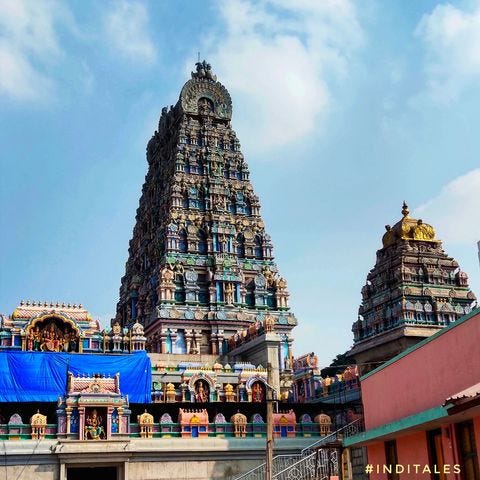Week 203: Fall of Roman Paganism, Where should Hindus spend their energies, Aesthetic
11/04/2023 - Modern Hindu Content
Welcome to Eternal Path! This week we feature: a timeline of the fall of Roman paganism, a meme on where Hindus spend their energies, and an aesthetic!
History Highlight: Timeline of the fall of Roman Paganism
Copied from a tweet from Satyam Bruyat (@maa_bhaishiiH), tweet with sources here.
Hello my dear fellow Hindus, I give a nutshell historical timeline of the fall of polytheistic pagan religions in the Roman Empire.
DISCLAIMER: Any resemblances to current Indian character and contemporary Indian events are "coincidental" .
312 AD - the Roman emperor Constantine converts to Christianity which is then a minority religion , mostly popular among the lower classes. He issues the Edict of Milan that proclaims TOLERATION FOR ALL RELIGIONS. But he destroys some badly maintained temples and built new churches instead of restoring the temples. Churches and the clergy are exempted from taxes in his reign.
355 AD - the second Christian Emperor Constantius II issues a decree saying: Superstition (pagan religion) shall cease; the madness of sacrifices shall be abolished. For if any man, in violation of the law of the sainted Emperor (Constantine), Our Father, and in violation of the command of Our Clemency, should dare to perform sacrifices, he shall suffer the infliction of a suitable punishment and the effect of an immediate sentence. Some more temples are ceased by the emperor citing "immoral practices" and then they are given to churches or are allowed to be appropriated by individuals.
361 AD - Rome now gets a pagan emperor Julian. He does a lot of work to revert the empire back to the old gods and reclaim temples converted to churches. While Christians hate him for simply being a pagan, pagans hate him for "other reasons" - the educated found his fondness of animal sacrifices off-putting and the uneducated found his philosophical pretensions weird. A 4th century woke pagan named Libanius writes this: Though we are bound to rejoice at the restoration of the temples, we must not surround the reform with an atmosphere of bitterness in case we in turn hear similar accusations made against us (this is the sort of thing that is happening at present). The sons of Thalassius converted temples into a house. They acted in conformity with the policy approved by the emperor of the day. I do not approve of it, but this was legal at the time. They can't be held in fault. Julian writes: These impious Galileans [Christians] not only feed their own poor, but ours also; welcoming them into their agape [feast of love], they attract them, as children are attracted, with cakes. So Julian advises his pagan citizens to give their faith a united identity!! He want the pagans to engage in charity and support their community regularly.
363 AD - Sadly after Julian died, it is all Christian emperors all over again. They wait for sometime to act, keeping the pagans docile
380 AD - Emperor Theodosius I declares Nicene Christianity to be the only official religion and practise of polytheism is punishable by death. He closes the Academy in Athens founded by the pagan philosopher Plato around 1000 years old then. He does nothing as angry Christian mobs burn or sack or vandalize temples throughout the empire.
600 AD - paganism is hunted down by the Emperor Justinian, now surviving only in the remotest rural corners of the empire.
800 AD - paganism has disappeared almost completely, even from the rural areas. All that remains of the old gods are just few pillars, some books, few pieces of vandalized idols. The sacred books that remained also weren't preserved due to benevolence but to tell the Christians how ridiculously superstitious their pagan ancestors had been while serving as language textbooks.
As @jsaideepak said in a video "Europe wasn't a Christian civilisation to begin with. It was converted. The first defeated civilisation wants us to believe that we are a defeated civilisation even though we have endured for 1000 years".
I think any of our readers with a cursory knowledge or interest in historical India or contemporary Indian politics and its relation to Hinduism will see clear parallels.
Meme Highlight: Hindus commenting on Geopolitics
Remember that raising awareness about the travails facing the Hindu community is a much more important task than commenting on geopolitics



